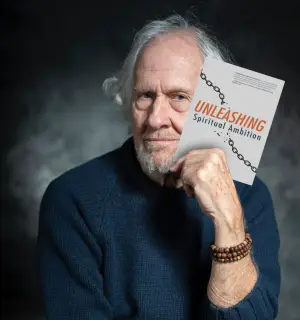Review of The 48 Laws of Power by Robert Greene
When I first picked up The 48 Laws of Power, I was drawn in by the intrigue of its title. Power dynamics are everywhere, lurking in every conversation, office setting, and even social gatherings. I’ve always been curious about the unspoken rules that govern our interactions, and Robert Greene’s incisive exploration promised to unpack the layers of human behavior with both depth and panache. This multi-million-copy bestseller has intrigued readers since its release, and I was eager to delve into its pages.
At its core, The 48 Laws of Power is both a guide and a warning. Greene distills three thousand years of history, philosophy, and personal anecdotes into 48 essential laws. Whether you see it as a manual for manipulation or a defense against the tactics of the ambitious, the laws reveal unsettling truths about human nature. Each law—like “Never Outshine the Master” or “Crush Your Enemy Totally”—functions like a double-edged sword, showcasing the art of strategy and the sometimes brutal realities of power struggles.
Reading Greene’s writing felt akin to engaging in a captivating yet morally ambiguous conversation with a knowledgeable mentor. His prose is direct and engaging, providing historical anecdotes that read like riveting tales rather than dry histories. For instance, the story behind each law often comes bolstered by figures like Machiavelli and Sun Tzu, weaving a narrative that feels both timeless and timely. I lost track of time flipping through these eloquently crafted chapters; they had a way of compelling me to consider my own encounters through a different lens.
One memorable quote that resonated with me was, “The more you say, the more common you appear.” This stark advice is a microcosm of Greene’s entire approach—a reminder that restraint and subtlety often speak volumes more than loud proclamations. I found myself reflecting on past conversations, reassessing my own strategy and approach. It’s an uncomfortable yet enlightening experience, as Greene challenges you to scrutinize not just others’ motives, but your own as well.
However, it’s essential to approach this book with a discerning eye. Greene’s laws are unapologetically amoral; the very essence of power he describes can lead to ethical dilemmas. I often felt like I was dancing on a tightrope, weighing the practicality of his advice against a moral compass that sometimes urged me to steer clear of confrontation.
All in all, I believe The 48 Laws of Power is a must-read for anyone interested in the intricate machinations of human relationships. It’s particularly valuable for leaders, negotiators, and even everyday people who seek a greater understanding of their social environments. The richness of Greene’s narrative left me contemplating the darker corners of ambition and influence long after I turned the final pages.
If you can embrace its moral complexity, this book is sure to spark thoughtful conversations and perhaps even shift the way you navigate your own path through life. Its blend of wisdom, caution, and provocation makes for a profoundly engaging read—one that resonated deeply with me and, I believe, will do the same for many of you.






